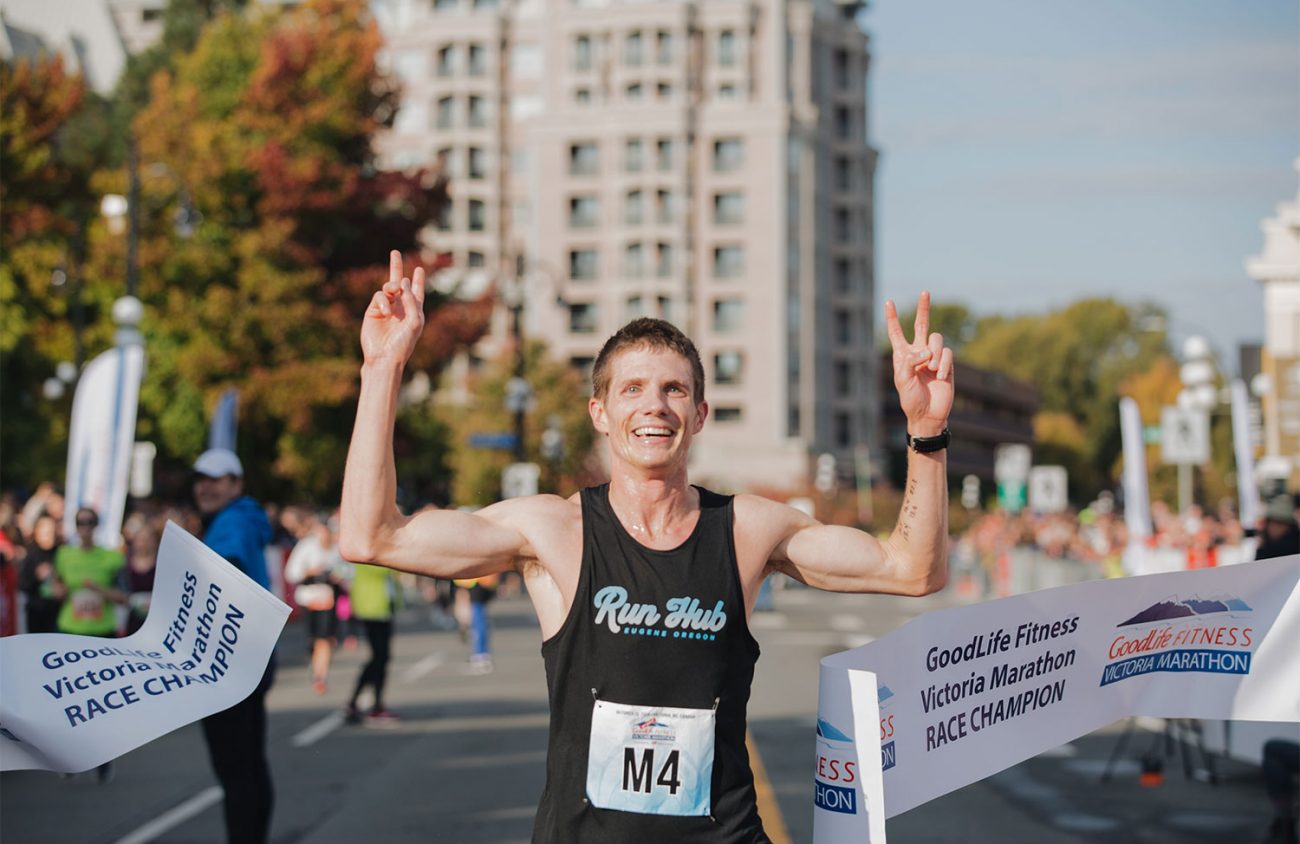Eric Finan is dealing with a broken toe when Eugene Weekly sits down to talk with him.
The injury is the result of a mountain bike incident, but it sounds like only a minor setback for his training to run the marathon in the 2020 Olympic trials in Atlanta, Georgia, on Feb. 29. He’s optimistic that he’ll soon be running 100 miles a week again.
Finan has made many major life decisions based on running, and when he runs at the trials on Leap Day, he’s accomplishing a goal that he once thought had disappeared years ago.
Before moving to Eugene in 2015, Finan attended University of Cincinnati because he wanted to pursue engineering while also running in a competitive collegiate conference. After graduating in 2012, he wanted to run in a post-collegiate group, but because he was injured during the last part of his fifth season, he says those running groups didn’t want him.
He worked in Cincinnati for a year and got healthy. In 2013, he ran the U.S. Half Marathon Championships in Minnesota, finishing in 1:04:42. He attracted the attention of Team USA Minnesota, so he moved to Minneapolis to run with the group.
But after again suffering some injuries from the higher-intensity philosophy of the coach there, Finan says he decided to run with Team Run Eugene, so he looked for work in the area.
Today, Finan is coached by Tim Sykes, who was a volunteer assistant coach at the University of Oregon before moving to Western Kentucky University for a full-time coaching job.
A self-described realist, Finan says he’s not expecting to make it in the top three on the U.S. team that would compete in Tokyo. Judging by the results from the 2012 Olympic trials in Houston, to make the team he’d need to finish under 2:10 — meaning he’d have to run a 5-minute pace.
He’s setting the bar at a top-25 finish, but he’s not necessarily running the trials to make the team. It’s about completing promises he made to himself while in high school.
He set two life goals then: to run a 4-minute mile and run in the Olympic trials. He completed the first goal, but missed the second goal in 2016 by seven seconds and didn’t make the trials for the 5k event.
Finan says he was devastated that he didn’t make the trials. He didn’t run for a few months and drank and ate to excess.
“I had my mind set on the trials. I had my heart set, my body, my soul to compete in the Olympic trials,” he says. “I believed it in my entire being that this thing was going to be true.”
He adds that he took it as a given that he would be running in the trials and was already thinking about preparing himself for the actual race. “I was crushed, and I was definitely depressed,” he says about missing the cutoff time. “I felt like I had worked so hard — for what?”
After taking a few months off from running — the longest non-injury break he’d ever taken — he talked with some friends and hit the pavement running again. It was a rough first month back because he hadn’t treated his body well during that break, he says.
About 12 weeks of training later, thanks to a dedication to weight training and years of high-volume running, he made his marathon debut at California International Marathon in Sacramento, finishing at 2:17:51.
The result meant that he could — after missing trials in the 5k — satisfy that other running goal he established for himself. He returned to Sacramento in 2017, finishing the race at 2:16:42, qualifying to compete in the U.S. Olympic Trials.
Despite not thinking he has a chance to travel to Tokyo, competing at the trials is a lot like runners trying to qualify for the Boston Marathon, even though they won’t be winning the race. It’s about the race, not the results.
“For me and many people in that race, I get to compete in the U.S. Olympic trials, and that is going to be an extremely exclusive and amazing experience,” he says.
Although running and a full-time job take up a lot of his time, he says his social scene is found in running groups. He runs with others as much as possible. “Some of the best conversations for me have been on a run. You don’t have any distractions,” he says. “That’s how I connect with other people.”
He’s sponsored by the local running store Run Hub, and when Finan is healthy again from his broken toe, he says he’ll be at future community runs — and he’s always looking forward to meeting new runners and walkers.
“It’s an awesome running community,” he says. “I really like running with and meeting new people.”
